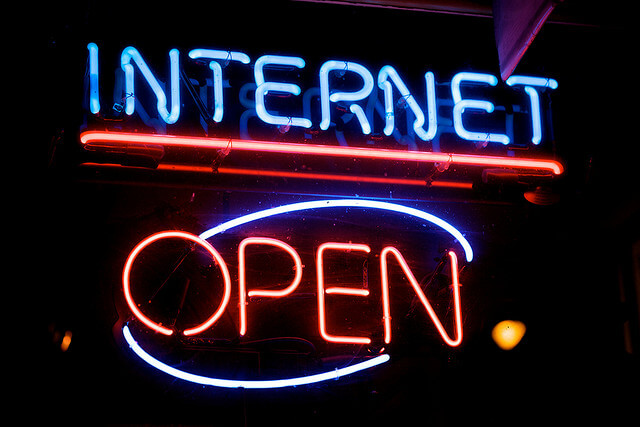In a significant and hotly debated decision, the U.S. Federal Communications Commission (FCC) has voted 3-2 to advance a proposal that aims to reinstate net neutrality rules and expand its regulatory authority over broadband internet services. This landmark move marks a shift in policy, as the FCC seeks to reestablish open internet rules that were initially implemented in 2015 and later rolled back during the Trump administration.
The voting commenced on Thursday, signifying a significant step toward reinstating net neutrality. The very concept of the same has been at the center of heated debates within the technology and telecommunications sectors for over two decades. Net neutrality essentially ensures that all internet content and data are treated equally by internet service providers (ISPs). It prohibits ISPs from blocking or throttling certain online content while allowing faster access to other services for a fee, a practice commonly referred to as “paid prioritization.”
A final vote on the reinstating of net neutrality rules is likely to be held next year. “As long as I have served on the FCC, I have supported net neutrality. But in 2017, despite overwhelming opposition, the FCC repealed net neutrality and stepped away from its Title II authority over broadband. This decision put the agency on the wrong side of history, the wrong side of the law, and the wrong side of the American public. Today, we begin a process to make this right,” said Jessica Rosenworcel, Chairwoman, FCC.
The reviving of the net neutrality principles includes prohibiting broadband providers from blocking or slowing down internet traffic and preventing the creation of paid fast lanes. The proposed rule, known as the Notice of Proposed Rulemaking (NPRM), has now been approved for public comment. This allows the public to provide feedback and insights into the rule. As mentioned earlier, the decision to advance the proposal was met with a 3-2 vote, with the majority of Democratic commissioners supporting the move while Republican commissioners opposed it. One of the major reasons why net neutrality is making a comeback is because of the pandemic and subsequent lockdowns. Nobody needs reminding how the pandemic had underscored the importance of reliable and accessible high-speed internet access. With remote work, online education, and virtual communication becoming integral aspects of daily life, the pandemic highlighted the necessity of broadband services.
One of the most significant changes introduced in the proposed rule is the reclassification of broadband as a utility. This reclassification, similar to the regulation of water and electricity services, provides the FCC with the authority to implement stricter regulations and oversight over broadband providers. “Now is the time for our rules of the road for internet service providers to reflect the reality that internet access is a necessity for daily life,” Rosenworcel added.
The reclassification under Title II of the Telecommunications Act serves as a legal basis for the enforcement of net neutrality rules, empowering the FCC to ensure that all internet traffic is treated fairly, regardless of its source or content, and protects consumers from potential discrimination by ISPs.
The reinstatement of these net neutrality rules has not been without controversy. Critics argue that the current market dynamics are adequate, with concerns that regulatory measures may stifle innovation. Furthermore, opponents believe that the FCC is overstepping its authority and express worries that net neutrality rules may lead to unnecessary regulation of broadband rates, limiting the flexibility of ISPs.
Telecommunications companies and Republican commissioners have been vocal in their opposition to the proposal, expressing concerns about the potential burdens on broadband providers and have warned about the risk of regulatory expansion and interference in cybersecurity. Nonetheless, it is expected to move forward, given the Democratic majority within the FCC. Legal challenges are virtually certain as the FCC proceeds with its efforts to reinstate net neutrality. The ongoing debate and discussions around the role of government regulation in safeguarding an open and equal internet are expected to continue.
The Tech Portal is published by Blue Box Media Private Limited. Our investors have no influence over our reporting. Read our full Ownership and Funding Disclosure →






